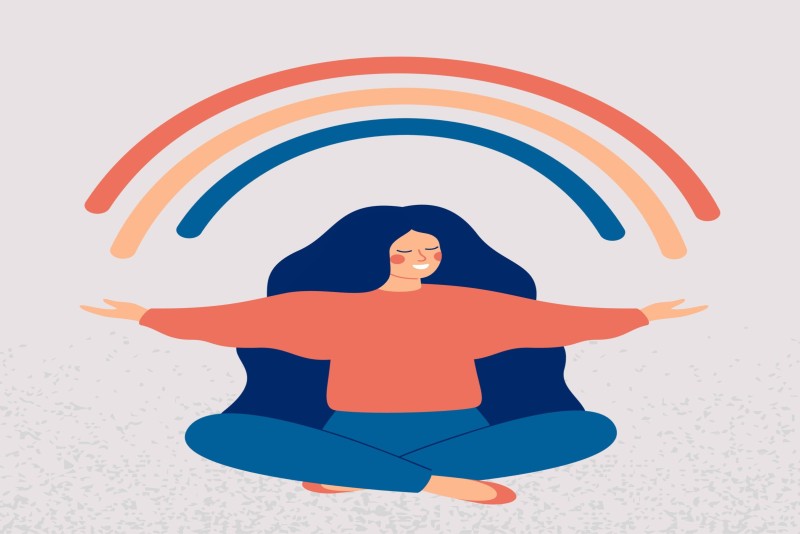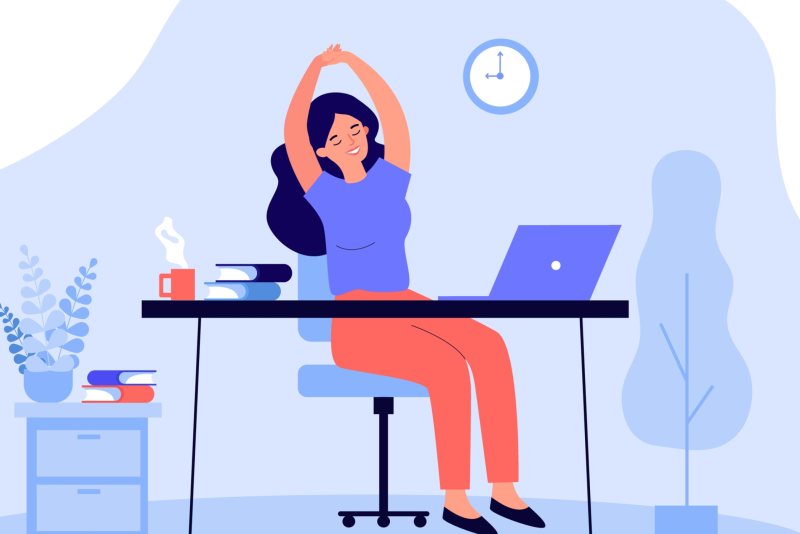How Did You Sleep Last Night? A Practical Guide For Sleeping Better
Two critical cornerstones for navigating daily life with a sense of wellbeing and resilience are sleep and rest. And they’re not the same thing.
Underlying this need for different types of rest, is good sleep each day. The quality of your sleep goes a long way in determining the quality of your daily life.
If you need convincing, consider this:
“If we all slept enough, our healthcare burden would plummet, we’d have better mental health, businesses would be more productive, and our children would be smarter. Sleep is the best health insurance policy you could ever wish for.”— Matthew Walker, neuroscientist and sleep expert
Read on for a practical approach to improving the quality of your sleep.
Why Is Sleep So Important?
Neuroscientist and yoga nidra advocate, Dr. Andrew Huberman, puts it plainly: “Best stress relief: sleep. Best trauma release: sleep. Best immune booster: sleep. Best hormone augmentation: sleep. Best emotional stabilizer: sleep.”
How much, how little, and how well you’re sleeping is impacting almost every aspect of your biology, physiology, psychology, and cognition.
The research is in and, if you care about the quality of your life, and your impact on the people in it, it’s time to prescribe yourself an optimal daily dose of shut-eye.
How Much Sleep You Need
The classic ‘eight hours’ is a misleading average not a directive. We’re all different. The vast majority of adults need somewhere between seven to nine hours of sleep each night, at the right time for your chronotype (sleep type).
This quick test helps you assess if you’re getting enough sleep:
If your alarm clock didn’t go off in the morning, would you sleep beyond the time you set it to wake you? If your answer is yes, your sleep needs are not being met.
As Walker points out, “the snooze button exists because as a first world society we are always carrying some form of sleep debt”.
The Body Basics For A Good Night's Sleep
Setting up for a good night’s sleep begins upon waking. Your choices and actions throughout your day are either supporting sleep or working against it:
Food: No eating within two hours of your bedtime. Check you’re not taking stimulating supplements (like certain B vitamins) at night. Nicotine is also a stimulant.
Drink: No caffeine after 2pm. Alcohol negatively impacts sleep and prevents deep rest. Drinking certain herbal teas like chamomile in the evening can support better sleep.
Light: Get direct sunlight first thing on waking, avoid screens and artificial light before bed and after 10 p.m. Sleep in a completely dark room.
Temperature: A warm bath or shower before bed helps your body temperature drop. Cooler body and room temperatures support sleep.
Movement: Regular exercise is vital for good sleep. Gentle stretching and yoga before bed help downregulate your nervous system and activate ‘rest and digest’ mode.
Touch: Self massage also aids calm and relaxation. Try spending ten minutes massaging warm oil into your feet and lower legs just before bedtime.
Putting Your Mind, Emotions, And Insomnia To Sleep
What routinely interferes with sleep or disrupts our nightly sleepiness can be summed up in a single word: ‘noise’. Dr. Rubin Naiman, a sleep and dream specialist, offers a holistic perspective on sleep struggles:
The primary cause of insomnia is a kind of excessive wakefulness, rather than lack of sleepiness, that results from unexamined 'noise' in our lives.
Noise refers to varying degrees of excitation or agitation that arise from somatic, psychological or environmental sources. Think of these as body, mind, and bed noise. When our noise levels are greater than our sleepiness, we remain awake.
Mind noise includes things like worry, anxiety, and stress. It’s often experienced as unstoppable thinking or 'cognitive popcorn’. Body noise is pain and discomfort and bed noise is your partner’s snores, for example. This noise is cumulative, subtly accruing over time from various ‘body, mind, and bed’ sources.
If your mind is keeping you awake at night, it’s useful to consider: What kinds of thoughts, beliefs, and emotions am I bringing to bed with me? Can I sleep comfortably with them? If not, it’s time to tend to your mental and emotional wellbeing with proven techniques like iRest yoga nidra, journaling, and therapy.
What Not To Do If You Want To Sleep Well
Knowing what not to do can be as useful as knowing what works. If any of the below feature heavily in your days, they may be contributing to poor sleep hygiene.
Too many stimulants: Caffeine, alcohol, nicotine, and bright screens all work against sleep. Consider removing or reducing the presence of these.
Unattended mental health: High stress, anxiety, and worry make it very difficult to fall asleep and stay asleep. A combination of proven techniques, like a daily iRest meditation, plus reaching out to other people (we’re not meant to experience hard times alone) constitute mental health-focused care.
Ignoring your chronotype: If your innate sleep type (night owl, neutral, morning lark) is mismatched with your bedtime you may struggle to fall asleep. This one may be tricky for night owls because of social norms around school and work start times. It’s still worth knowing your chronotype.
Spending too much time in bed: If you’re struggling to sleep, it’s counterproductive to spend a lot of time in bed lying awake. Don’t go to bed until you’re sleepy. Don’t lie awake for hours, rather get up and go to another room.
Your nightstand: “Your nightstand reflects your stance toward nighttime and sleep”, explains Dr. Naiman, “use it to begin evaluating your personal sleep story. If sleep is a nightly get-away, your nightstand is the overnight bag you carry. Is it suggestive of a rejuvenating personal retreat? Or, is it more about a stressful business trip?
Letting Go Into Deep Sleep
“Sleep is like a cat. It only comes to you if you ignore it.”— Gillian Flynn
Senior iRest Trainer and creator of the free sleep yoga nidra below, Clearlight Gerald explains: “By genuinely letting go of trying to make anything happen, you'll often find that sleep takes care of itself.”
Life carries on regardless of how many nighttime hours you spend ruminating about it. Test this hypothesis and you’ll find it’s the case 100% of the time.
What works to support sleep is clear. Add and subtract what you need to, and then try something new tonight: leave the waking world at your bedroom door. Tomorrow’s another day, it’s worth being well-rested for it.
If you’d like to learn more and explore practical techniques for getting better sleep and resolving sleep struggles, join Senior iRest Trainer, Robin Carnes, live online for her upcoming half-day sleep workshop on Sunday, November 6.
SOURCES
Andrew Huberman Podcast
The Knowledge Project Podcast
“Why We Sleep” by Dr Matthew Walker
“Healing Night: The Science and Spirit of Sleeping, Dreaming and Awakening,” by Dr. Rubin Naiman
Peter Attia Website






masha.rykova Liokumovich
Thank you! The sleep chronotype quiz was missing. There was no link to click for it. Could you please share it?
Thanks
zinoviyzelensky Zell
Asleep? Should I ask where? After all, a dream can come not only in bed, but also in the car, especially in travel, when you did not think about housing, and so want to sleep comfortably. Then CarCheckVin will help you, they know exactly what should be the atom for travel and that your sleep in it like a baby